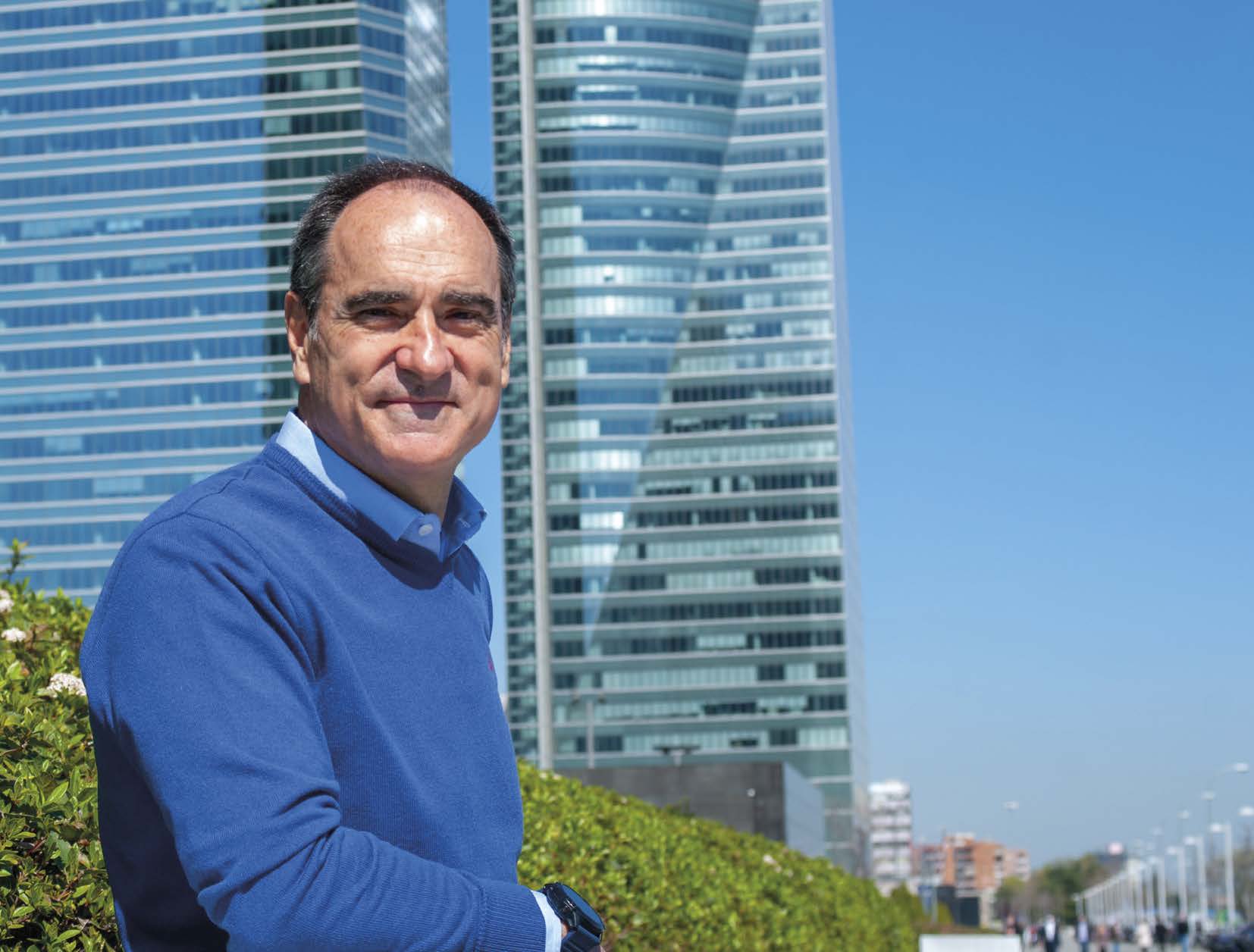Interview with Alejandro Arderius
GENERAL MANAGER OF SULO IBÉRICA

Can you tell us about your background?
I studied Business Administration at the Complutense University in Madrid and, after a short period at the German company Beiersdorf Nivea, I started my career with the Group at the age of 26.
How long have you been working for SULO?
I have been working in the SULO Group for 30 years, for 16 years as General Manager of SULO Ibérica and for 4 years as the person responsible for the Hispanic Zone.
How many people does the SULO Ibérica team consist of?
We are currently about 215 people.
What was your “relationship“ with the Madrid City Council before the ECO change?
Excellent, Madrid City Council is an old customer of SULO Ibérica. Our relationship started in 1984 and since then we have always had a very trusting relationship, regardless of the political portents of the government.
When did you have the idea to propose the switch to the round ECO bin?
When the group was making progress in implementing recycling and when the objective of “rationalizing the ranges“ was introduced through Project One.
How many meetings did you have to convene to convince the representatives in Madrid?
There were many meetings, yet everything went quickly because the idea was well received from the start. Nevertheless, there were also some difficulties to overcome.
Were you sure from the start that Madrid would agree?
Not always, because although the environmental and image benefits for the municipality were clear, the colour of the containers in Madrid has been light grey and yellow for almost 35 years.
What were obstacles during the process?
As mentioned one obstacle was the historical colour of the containers. And we were also a little unsure how citizens would react.
What do you think was the decisive motivation for Madrid to go through with the change?
The significant improvement for the environment that comes with complying with the rules of the circular economy: new containers are made from old containers that are now reused completely at the end of their life cycle.
What changes can you notice now?
The image of the city has become more modern. The color integrates very well into the image and we can be proud that a SULO initiative is very visible and improves the environment.
How did the residents of Madrid react?
The citizens are not affected by the change and have accepted the color change as a matter of course. We have not become aware of any complaints about it.
“We are pleased that
the city of Madrid is now a role model
for the circular economy.”
What is the most important thing for you about the whole project?
We have contributed to an environmental improvement in our city and achieved an economic benefit for SULO. And we are particularly pleased that the city of Madrid is now a role model for the circular economy.
On which points have you been skeptical?
I have always believed in the project. The only doubt was whether environmental improvement would suffice as an argument to overcome an old habit. It did.
“The city of the future
will be smart and sustainable,
we have no doubt about that.”
What do you personally think about what the “city of the future“ should look like?
The city of the future will be smart and sustainable, we have no doubt about that. Specifically, I think everything will be about identifying the waste producer, because that‘s the basis for fair, pay-as-you-throw payment and also about a better understanding of citizens‘ behavior. The dialogue with the citizen will become more and more important.
How can SULO and all of us contribute to improving the quality of life in cities?
By following our own motto and being aware that we are part of the solution to “turn today‘s waste into tomorrow‘s resources“.
What are the big changes of the future?
I think the vision of sustainability and “smart cities“ will move beyond the status of theory and become a tangible and economically manageable reality. The circular economy is a good example of the potential, because for the first time, addressing environmental needs is generating economic benefits. This marks the end of the time when environmental protection was only a phenomenon of the richest countries.
What aspects of this project bring us closer to our goal of “a world without waste“?
The use of recycling to make new containers from old ones is a big step towards achieving this goal. And the paradoxical and significant thing is that we are reducing waste while making products that are used to recycle all kinds of materials. Circular economy in its purest form.
Please add 3 personal impressions you would like to highlight:
- Nothing is impossible and we cannot assume that the customer will say “no“ to us.
- It is possible to combine environmental and profitability goals.
- in these times of change, habitual skepticism is a big mistake.

